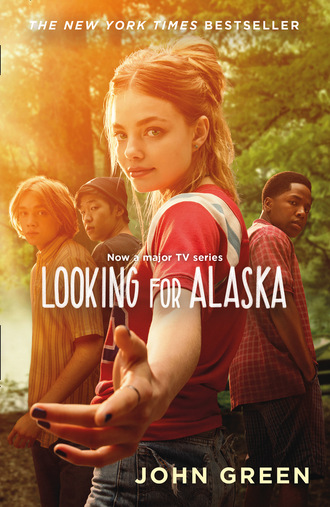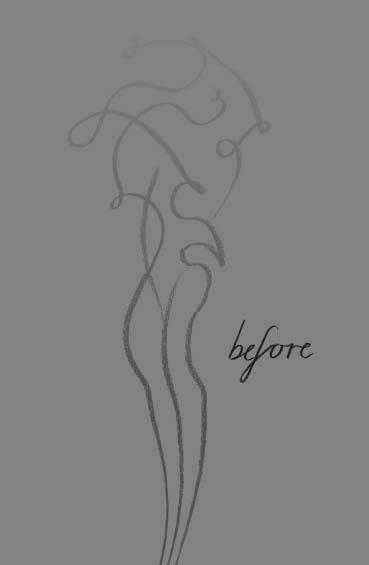
Полная версия
Looking For Alaska



Copyright
First published in the USA by Dutton Books, 2005
First published in Great Britain by HarperCollinsPublishers Ltd,
1 London Bridge Street,
London SE1 9GF
This edition published in 2015
www.harpercollins.co.uk
www.johngreenbooks.com
Looking for Alaska
Text copyright © John Green 2005
Additional content for this edition © John Green, 2015
John Green asserts the moral right to be identified as the author of this work.
A catalogue copy of this book is available from the British Library.
This book is a work of fiction. Names, characters, places and incidents are either the product of the author’s imagination or are used fictitiously, and any resemblance to actual persons, living or dead, business establishments, events or locales is coincidental.
All rights reserved under International and Pan-American Copyright Conventions. By payment of the required fees, you have been granted the non-exclusive, non-transferable right to access and read the text of this e-book on-screen. No part of this text may be reproduced, transmitted, down-loaded, decompiled, reverse engineered, or stored in or introduced into any information storage and retrieval system, in any form or by any means, whether electronic or mechanical, now known or hereinafter invented, without the express written permission of HarperCollins.
Source ISBN: 9780008120924
Ebook Edition © 2014 ISBN: 9780007369683
Version: 2019-10-10
Text Credit
Pages 24 and 191-192: Excerpt from The General in His Labyrinth by Gabriel García Márquez
Page 107: Poetry quote from “As I Walked Out One Evening” by W. H. Auden
Page 111: Poetry quote from “Not So Far as the Forest” by Edna St. Vincent Millay
Dedication
To my family, Sydney Green, Mike Green and Hank Green.
“I have tried so hard to do right.”
(last words of President Grover Cleveland)
Contents
Cover
Title Page
Copyright
Text Credit
Dedication
Introduction
Before
One Hundred Thirty-Six Days Before
After
The Day After
Some Last Words on Last Words
Deleted Scenes
Opening Scenes
Original Draft Opening, August 2003
Original First Meeting, August 2003
The Funeral
Original Funeral, August 2003
Funeral, Revision Delivered January 2004
Funeral, Revision Delivered March 2004
“Before & After” Counting Alaska’s Days
Q & A with John Green
Alaska, Ten Years Later: A Literary Retrospective by Michael Cart
Acknowledgments
About the Author
Also by John Green
About the Publisher
introduction
It is a funny business, to introduce a book you published ten years ago. In some ways, I am the least qualified person to write this—for one thing, authors are notoriously poor when it comes to assessing their own work (nothing makes me shudder more than hearing an author friend tell me, “I’ve just written my best book yet”). For another, I last read Looking for Alaska in January, 2005, so among almost everyone who has ever read the book, my memories are the most distant.
Looking for Alaska began for me in September of 2001. I was working at Booklist magazine as an editorial assistant and occasional book reviewer, and one of my editors, the children’s book author Ilene Cooper, was encouraging me to actually write the semi-autobiographical boarding school story I’d been pitching to her for years. She even gave me a deadline: March 1, 2002.
Then on September 11, the World Trade Center was attacked. A few days later, my girlfriend, with whom I’d been living for a couple years, broke up with me. I descended into an intense period of depression, eventually taking a leave of absence from my job at Booklist to focus on getting my mental health straightened out. On my last day at the magazine, the publisher Bill Ott wrote me a brief note: “Expect to see you back here in a couple weeks. Eat, get healthy, and—now more than ever—watch Harvey.” Bill had been bugging me to see this old movie, Harvey, for years.
My dad drove me home to Orlando, where I hadn’t really lived since leaving for boarding school when I was fifteen. I spent a couple weeks in daily therapy sessions, figuring out a medication regimen that worked, and watching a lot of TV, where the news people kept talking about 9/11, the day that changed history. Soon, they were talking about the pre-9/11 world and the post-9/11 world. One night watching cable news, I heard a psychologist say that Americans would organize their memories around that terrible day: before and after. It occurred to me that we almost always measure time in relation to what matters most to us: In the Christian calendar, we measure distance from the birth of Jesus. In the Islamic calendar, they measure distance from the hijrah, the Muslim community’s journey from Mecca to Medina.
The story I wanted to tell—based very loosely on high school memories—was about young people whose lives are so transformed by an experience that they can only respond by reimagining time itself. I’d stumbled onto a structure that could work for the book, but I had no energy to actually write it.
And then I watched Harvey. Now, I don’t believe in epiphanies, but all I can say is this: I woke up the next morning feeling a little better, and in the years since, I have never felt quite as bad as I did before watching Harvey. Within a week, I was back in Chicago, back at work, back to being pestered by Ilene about my story. At night and on the weekends, I wrote.
On March 1, 2002, I handed Ilene forty single-spaced pages. It was a confusing jumble and only a few paragraphs of those pages made it to the final book. But Ilene saw potential in it and worked with me through many drafts over the next year, and then submitted it to publishers on my behalf. Dutton bought it, and after a few months in limbo, Julie Strauss-Gabel eventually became my editor.
The story still had a long way to go: There was no labyrinth of suffering in the manuscript that Julie first read, and no Great Perhaps. I wanted to write a novel about love and suffering and forgiveness, a novel of what in the study of religion is called “radical hope,” the idea that hope is available to all of us at all times, even unto—and after—death. I hope I pulled it off. If I did, it wasn’t because of me. It was because my parents welcomed me home, because Harvey portrayed mental illness as more than merely tragic, because Ilene and Julie believed in my work and devoted years to this novel, and because readers have looked upon it with generosity and forgiven its many flaws.
So that’s the story of my Great Perhaps. Thanks for being part of it.


Конец ознакомительного фрагмента.
Текст предоставлен ООО «ЛитРес».
Прочитайте эту книгу целиком, купив полную легальную версию на ЛитРес.
Безопасно оплатить книгу можно банковской картой Visa, MasterCard, Maestro, со счета мобильного телефона, с платежного терминала, в салоне МТС или Связной, через PayPal, WebMoney, Яндекс.Деньги, QIWI Кошелек, бонусными картами или другим удобным Вам способом.

